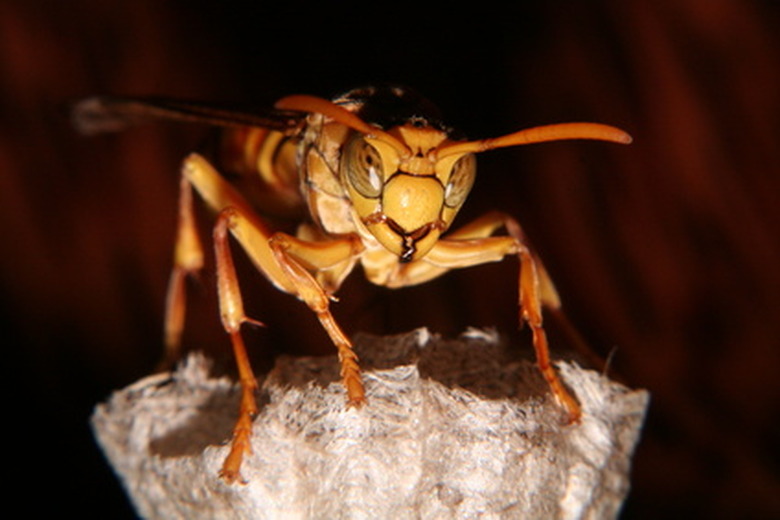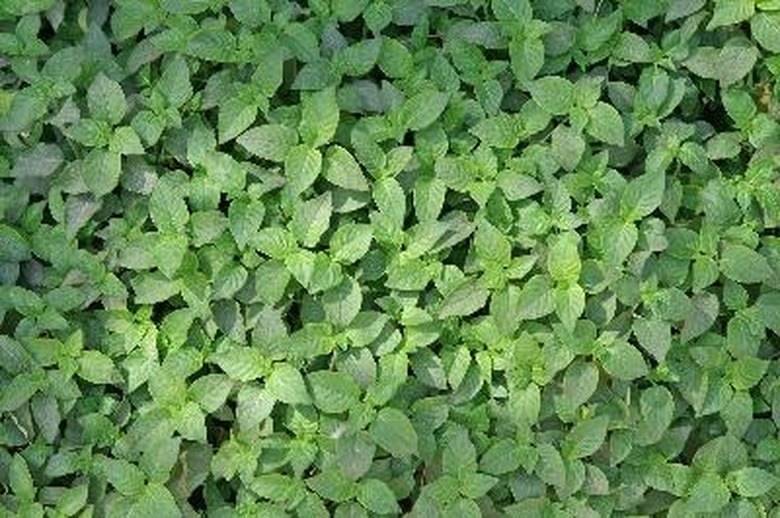Natural Hornet Repellent
The threat of painful hornet stings can make you a stranger in your own garden, but eco-friendly green thumbs and outdoor enthusiasts may be reluctant to use chemical-based repellents. They have good reason; diethyl-3-methylbenzamide – or DEET, a common insecticide found in most bug repellents – is effective, but it can cause rashes, lethargy, nausea or worse, according to Naturo Doc, a natural health products and information website. Turn to natural remedies, ranging from border plants to simple preventative methods, to ward off pesky hornets.
Repellent Plants
Just as citronella famously repels mosquitoes, some plants naturally repel hornets. Ask the Exterminator suggests that wormwood, or artemisia, acts as a famous catch-all bug and animal repellent, wasps and hornets included. Fragrant mint herbs repel hornets and wasps while peppermint wards off wasps, hornets, mosquitoes, flies, bees and ants. Arrange these small plants as borders around garden spaces or outdoor hangouts to create a no-hornet zone.
Essential Oils
Herbalist Karen McGeorge Sanders recommends a mixture of essential oils for a light, multipurpose insect repellent. Combine a ½-ounce of citronella oil, ¼-ounce lavender oil, 1/8-ounce pennyroyal oil, 1/8-ounce tea tree oil and a 1/8-ounce jojoba oil to create a strong repellent that can't be used on skin. Spray this mixture on clothing, bedding or tents or saturate paper strips and hang them around any spaces you wish to keep hornet-free. Add a few drops to candles, shampoos or liquid soaps. For a skin-friendly repellent, add 16 ounces of jojoba oil, almond oil or vodka, the base mixture, and stir thoroughly.
Commercial Repellent
As an alternative to DEET-based commercial repellents, numerous companies offer wasp and hornet repellents and killers that contain safe, natural ingredients. Some repellents are citrus based and contain elements such as orange peel extract, chrysanthemum flower pyrethins and potassium salts. Oil-based natural repellents contain peppermint, mineral and canola oils and phenethyl. Though most natural sprays kill hornets on contact, they act as repellents when sprayed around areas before hornets attack, acting as a sort of liquid fence. However, they should never be used on the skin. These aerosol sprays usually repel bees, wasps and yellow jackets in addition to hornets.
Preventative Measures
Some eco-friendly, completely natural preventative measures help ward off hornets. Avoid brightly-colored clothing, as hornets gravitate toward bright colors. Scented products and toiletries such as perfumes, colognes, body sprays and heavily-scented soaps and shampoos attract the stinging pests, so keep away from strong cosmetic scents to avoid their unwanted attention. Likewise, sweet foods such as candy, watermelon and ice cream bring hornets to the scene.

